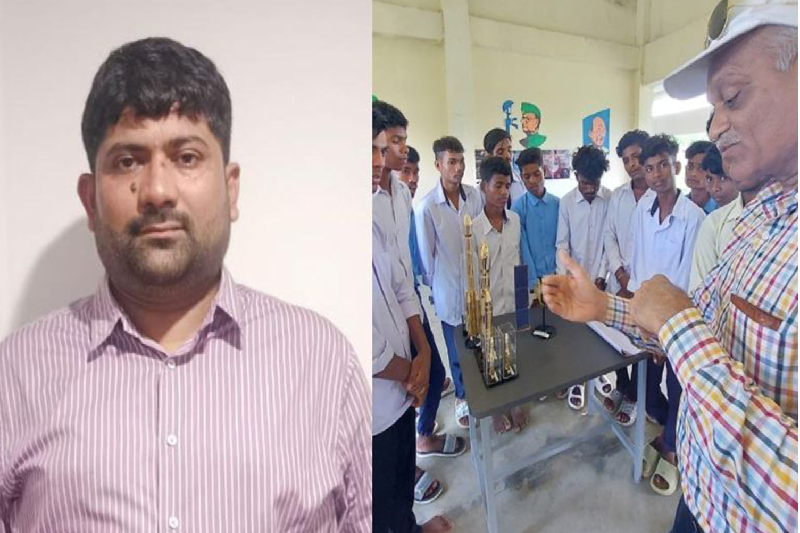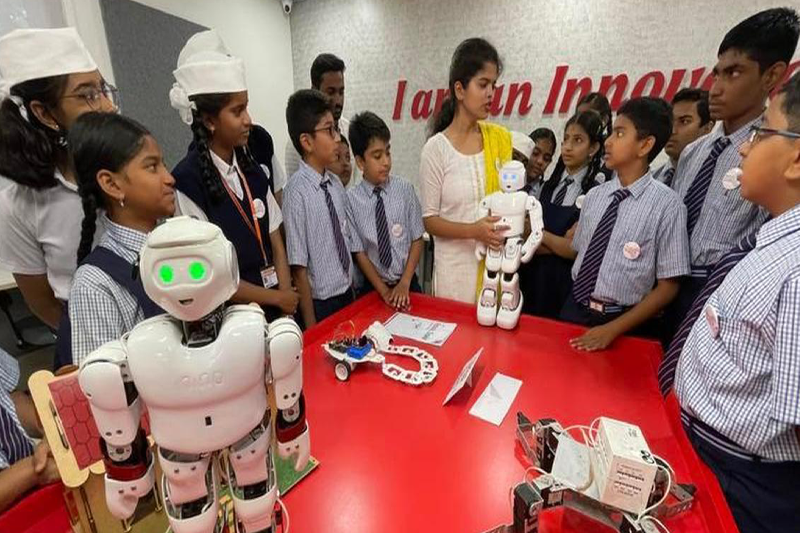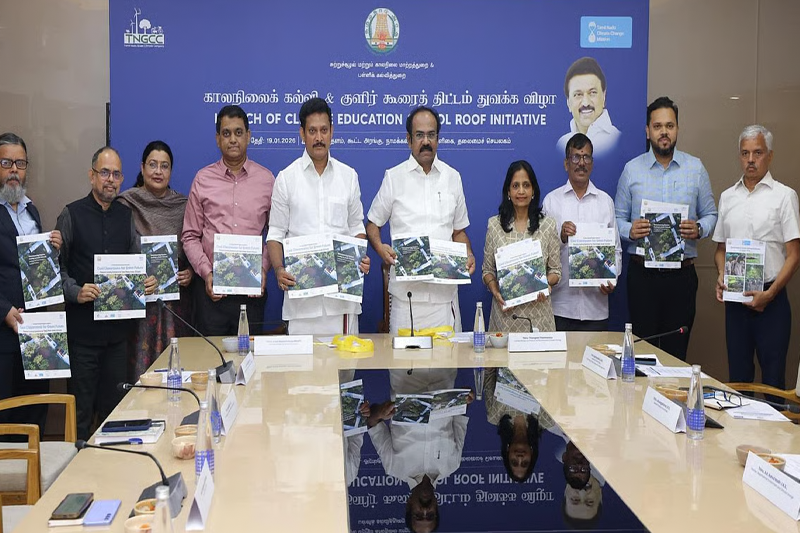
Braving Forests and Fueling Dreams: Assam Teacher Debajit Ghosh’s Journey to the National Teachers’ Award 2025
In the quiet tea garden town of Rangapara, Assam, a teacher's dedication is echoing across the nation. Debajit Ghosh, 34, has been conferred the National Teachers’ Award 2025 for his extraordinary commitment to education and community development. His daily 150 km commute through muddy roads and elephant corridors near the Dehing Patkai National Park to reach his students in the Namsang Tea Garden Model School is more than just a journey—it’s a symbol of resilience, purpose, and relentless hope.
150 KM Through the Wild: A Journey Like No Other
Each morning, as the first light filters through Assam’s misty tea estates, Ghosh sets off from Dibrugarh. The road ahead is treacherous—mud-laden paths, unpredictable weather, and frequent elephant crossings through forested patches. But he presses on. “If I don’t stay in Dibrugarh, the developmental work at the school will come to a standstill,” he explains. His wife works in the city, and he often gives a lift to two other teachers. With no direct public transport, his car has become a lifeline—for colleagues, for education.
This unwavering routine reflects more than just commitment—it embodies the grit that has transformed his school and its surrounding community.
Building a School, Rebuilding Futures
Ghosh’s current post as principal of Namsang Tea Garden Adarsha School, founded in 2022, marks a milestone in Assam’s tea estate education landscape. Before this school’s inception, children in the region dropped out after primary school due to the lack of nearby high schools. The only option involved a dangerous trek across forested terrain.
The new school changed everything. “For the first time, children from tea gardens had access to secondary education within reach,” Ghosh explains. In its first year, 271 students enrolled, ranging in age from 11 to 18. That number rose to 326 in the second year.
But it wasn't just about numbers. Over three years, 267 dropouts were successfully brought back into mainstream education—many of whom had been working in the plantations to support their families.
Innovation Inside the Classroom
Ghosh’s approach to education is rooted in hands-on learning and student curiosity. From organizing practical sessions, toy-making workshops, and "learning by doing" exercises, he ensures every student is an active participant. “Monotonous lectures don’t work anymore. If you want attention, you need interaction,” he says.
He seamlessly integrates ICT tools, virtual labs like O-Lab, and interactive 3D learning platforms such as MSD, which visually demonstrate complex topics like human anatomy. For many students from underserved backgrounds, these methods make science and learning not only accessible but enjoyable.
Creativity is a constant in his classroom. “Students learn better when they use their senses. We encourage them to explore, build, and express,” says Ghosh, who also runs orientation sessions to build confidence and problem-solving skills.
Health, Hygiene, and Holistic Development
Beyond academics, Ghosh noticed another barrier to learning—poor health, especially low haemoglobin levels among students. Under the Rashtriya Bal Swasthya Karyakram (RBSK), he initiated a health camp. The results were alarming, but he acted quickly. Iron and folic acid tablets, deworming treatments, and regular monitoring became routine.
In just three years, there was a marked improvement in haemoglobin levels, proving that his vision of education extended well beyond textbooks. His work created not only healthier students but more engaged learners.
A Story of Transformation: Abhishek’s Journey
One of Ghosh’s most memorable success stories is that of Abhishek, a Class 8 student who once struggled with writing and scored poorly in science. Instead of reprimanding him, Ghosh focused on mentorship. Through alternative assessments and personal guidance, Abhishek began to improve. His curiosity was rekindled, and his grades soared.
Today, Abhishek is pursuing a PhD in Mathematics—a testament to what personal attention and tailored teaching can achieve.
Results That Speak
The impact of Ghosh’s leadership is evident in hard data. In the school’s first HSLC (Class 10) batch, only 14 of 32 students passed. But in just a year, the next batch saw 18 out of 20 students succeed—a remarkable 90% pass rate. Even more impressive is that every successful candidate enrolled in higher education.
Ghosh maintains close ties with his former students, often inviting college and university professors to speak at the school. “It’s about building aspirations. Once students see what’s possible, they begin to dream bigger,” he says.
A Humble Heart Behind the Recognition
When the news of his selection for the National Teachers’ Award arrived, Ghosh was overcome with emotion. “It was a mixed feeling—joy, pride, and memories of my parents’ and uncle’s sacrifices for my education,” he shares. His uncle, Late Tarit Ghosh, played a key role in shaping his journey.
While proud of the recognition, he remains grounded. For him, the goal remains unchanged: to be remembered as a mentor who guided students through the most crucial phases of their lives.
Challenges and the Road Ahead
Even as he basks in national recognition, Ghosh is candid about ongoing challenges. “Technology is evolving fast. Teachers must continuously learn and adapt. If we stop growing, students stop engaging,” he notes.
He also points to systemic limitations: one-size-fits-all funding models, the absence of a sports teacher, and high personal transport costs. “Schools in hills and plains cannot function on the same grant,” he remarks, urging the government to consider ground realities in remote areas.
Recently, the school received a science lab, library, and teacher quarters—welcome developments. But Ghosh hopes for more targeted support, especially for staffing and transportation.
Final Words: Advice to Fellow Educators
To aspiring teachers, Ghosh offers heartfelt guidance:
“Don’t just prepare to teach. Prepare to understand and support your students in every way. Learning never stops—not for them, not for you.”



